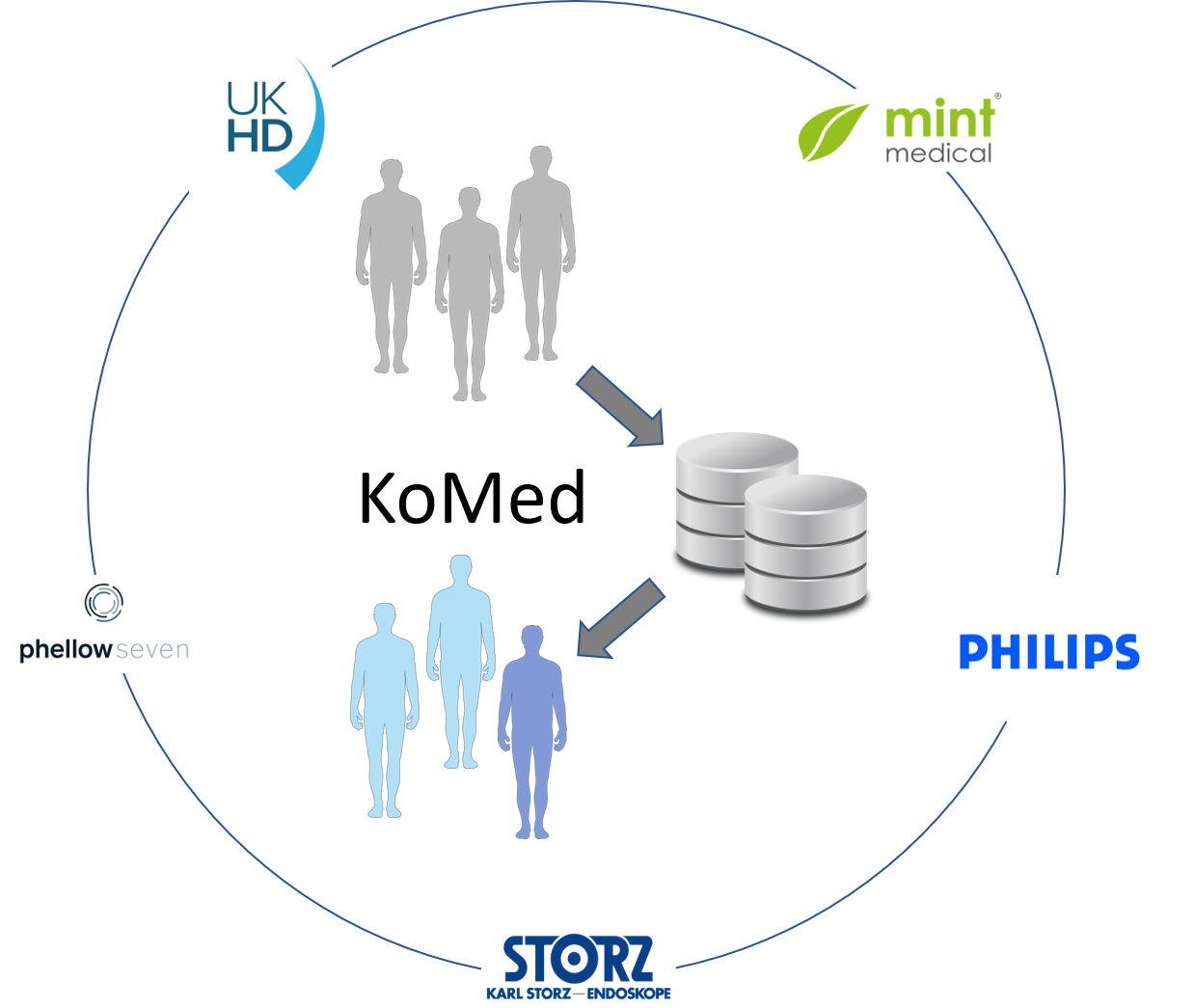"Surgery and the associated anaesthesia are very safe these days. They have never been so easy to plan and the risks have never been so well controlled," says Dr. Jan Larmann, senior consultant at the Department of Anaesthesiology at Heidelberg University Hospital, describing the current situation in hospitals. Nevertheless, a significant proportion of patients who undergo surgery experience complications, some serious, such as post-operative bleeding, wound infections, thromboses, heart attacks or renal insufficiency. On closer examination of the circumstances, however, this is not surprising, because difficult surgical interventions in particular (for example, tumour removal, heart operations) are currently often performed on an older population with significantly more underlying health problems than would have been the case 20 years ago. Basically, however, there are far fewer adverse incidents than there used to be due to improved techniques and comprehensive accompanying care.
KoMed, the Cognitive Medical Assistant
 Dr. Jan Larmann leads the development of the Cognitive Medical Assistant. © Heidelberg University Hospital
Dr. Jan Larmann leads the development of the Cognitive Medical Assistant. © Heidelberg University HospitalThe individual reasons behind the complications that occur are manifold and to date often insufficiently understood. Larmann therefore founded a working group in 2015 to investigate fundamental questions related to operations: How can patients with an increased risk of complications be identified? How can they be protected by prophylactic and therapeutic measures? To find comprehensive answers to these questions, he and other scientists at Heidelberg University Hospital have been working on the development of a Cognitive Medical Assistant (KoMed) since March 2020. The project is funded by the Baden-Württemberg Ministry of Science, Research and the Arts (MWK), and aims to systematically record the data associated with operations and subsequently analyse it using algorithms. "We want to enable decision support [tailored to patients]," says the anaesthetist, explaining the long-term goal. "We want to put in place a system that tells us which drug and which therapy is best for the individual patient in the current situation."
New storage structures enable comprehensive analyses
However, there is still a long way to go before this becomes possible. First of all, a suitable infrastructure for data processing needs to be created, because up to now information collected in hospitals has been stored in systems that are primarily designed for archiving data. These do not allow any comparison between patients or the identification of correlations. The task of the Medical Information Systems working group and the Centre for Information and Medical Technology at Heidelberg University Hospital is to save the data in a structured format that enables further analysis. Among other things, this also requires own server capacities to be established within a hospital’s system architecture so that the data is properly protected. phellow seven GmbH, a company that grew out of Heidelberg University Hospital, is developing an app to facilitate doctor/patient interaction outside the hospital. The app will provide digital anamnesis questionnaires that patients can fill out at home before an operation and from which the individual disciplines (anaesthesia, surgery, radiology, etc.) can select the information relevant to them.
 Heidelberg University Hospital (UK HD) is working with various industrial partners on the development of the Cognitive Medical Assistant. © Heidelberg University Hospital
Heidelberg University Hospital (UK HD) is working with various industrial partners on the development of the Cognitive Medical Assistant. © Heidelberg University HospitalThe clinical trial, conducted jointly with Prof. Dr. Pascal Probst, head of the Study Centre of the German Surgical Society, and Dr. Rosa Klotz, surgical resident at the Department of General, Visceral and Transplant Surgery, focuses on patients undergoing high-risk operations such as major abdominal or vascular surgery. It includes at least 600 participants who are being treated at the University of Heidelberg Department of Surgery. Initially, routine data is collected, i.e. general laboratory values, radiological images, ECGs or lung function values. These large amounts of data (big data analysis) are processed with the support of the Institute of Medical Biometry and Informatics. In addition, proteome analyses are carried out, i.e. the occurrence of about 1,000 different proteins is determined from the patients' blood plasma. Blood analyses are already used as a way of predicting risk; an elevated troponin value, for example, correlates with an increased risk of heart or circulatory complications. The systematic analysis of proteins circulating in the blood offers the opportunity to identify further risk markers.
Adjustment of risk assessment during hospital stay
A special feature of the study is the inclusion of current data generated during an operation. "During an operation, many individual steps occur that may change the patient's risk level," explains Larmann. The continuous, structured storage of blood pressure, ECG and oxygen saturation data, for example, is made possible with the support of Philips Medizin Systeme Böblingen GmbH, which manufactures monitoring systems. All measurement curves, i.e. the changes and not just individual values, can subsequently be analysed. Other cooperation partners are KARL STORZ SE & Co. KG, whose endoscopes provide digital images, and Mint Medical GmbH, which processes radiological images in a way that can be used for big data analyses. Postoperatively, the patients are monitored for a period of three months.
At the end of the two-year project phase, the Cognitive Medical Assistant should be able to recognise patterns and identify correlations from the advance data collected, which will lead to a significantly better assessment of a patient’s individual risk of complications than previous risk scores. This will serve as a basis for developing special prophylactic strategies in the future, thus making operations safer for patients. Furthermore, the project will also create a basis on which risk assessment can be adapted during the operation (anaesthetic procedures, medication). The new analysis structure will also be scalable so it can be used by other hospitals in Germany.